
A disciple came in to pay his respects to the Shaykh and by this (word) “Shaykh” I do not mean one old in years, but one old in understanding and knowledge (of God), even if he is Jesus, on whom be peace, in the cradle, or Yahyá (John the Baptist), on whom be peace, in the children’s school. The disciple saw the Shaykh weeping; he too acted in conformity (with the Shaykh) and wept. When he had finished and gone forth (from the Shaykh’s presence), another disciple, who was more cognisant of the Shaykh’s spiritual state, impelled by (noble) jealousy, went out quickly after him and said to him, “O brother, (whatever may happen) I shall have told you: for God’s sake, for God’s sake, beware of thinking or saying that the Shaykh wept and you wept likewise; you must practise self-discipline without hypocrisy for thirty years, and you must traverse ravines and seas full of leviathans, and lofty mountains full of lions and leopards, that you may attain to that weeping of the Shaykh or not attain. If you attain, you will often utter thanksgiving (as immense as is the extent of the earth, described in the words of the Tradition), ‘The earth was gathered together for me.’” مریدی در آمد به خدمت شیخ و ازین شیخ پیر سن نمیخواهم بلک پیرعقل و معرفت و اگر چه عیسیست علیهالسلام در گهواره و یحیی است علیهالسلام در مکتب کودکان مریدی شیخ را گریان دید او نیز موافقت کرد و گریست چون فارغ شد و به در آمد مریدی دیگر کی از حال شیخ واقفتر بود از سر غیرت در عقب او تیز بیرون آمد گفتش ای برادر من ترا گفته باشم الله الله تا نیندیشی و نگویی کی شیخ میگریست و من نیز میگریستم کی سی سال ریاضت بیریا باید کرد و از عقبات و دریاهای پر نهنگ و کوههای بلند پر شیر و پلنگ میباید گذشت تا بدان گریهی شیخ رسی یا نرسی اگر رسی شکر زویت لی الارض گویی بسیار
یک مریدی اندر آمد پیش پیر
پیر اندر گریه بود و در نفیر
A disciple came into the presence of the Pír: the Pír was (engaged) in weeping and lamentation.
شیخ را چون دید گریان آن مرید
گشت گریان آب از چشمش دوید
When the disciple saw the Shaykh weeping, he began to weep: the tears ran from his eyes.
گوشور یکبار خندد کر دو بار
چونک لاغ املی کند یاری بیار
The man possessed of an ear (sense of hearing) laughs once, when a friend repeats a joke to a friend; the deaf man (laughs) twice:
بار اول از ره تقلید و سوم
که همیبیند که میخندند قوم
The first time by way of conformity and affectation, because he sees the company laughing.
کر بخندد همچو ایشان آن زمان
بیخبر از حالت خندندگان
The deaf man laughs then like them, without knowing the (inward) state of the laughers.
باز وا پرسد که خنده بر چه بود
پس دوم کرت بخندد چون شنود
Afterwards he inquires what the laughter was about, and then, having heard, he laughs a second time.
پس مقلد نیز مانند کرست
اندر آن شادی که او را در سرست
Hence the mere imitator (of a Shaykh), too, resembles the deaf man in respect of the (feeling of) joy that is in his head.
پرتو شیخ آمد و منهل ز شیخ
فیض شادی نه از مریدان بل ز شیخ
It is the Shaykh’s reflexion, and its source is in the Shaykh: the overflow of joy is not (derived) from the disciples; nay, it is from the Shaykh.
چون سبد در آب و نوری بر زجاج
گر ز خود دانند آن باشد خداج
Like a basket in water or a (ray of) light on glass: if they think it (comes) from themselves, ’tis (owing to) defect (of intelligence).
چون جدا گردد ز جو داند عنود
که اندرو آن آب خوش از جوی بود
When it (the basket) is separated from the river, that perverse one will recognise that the sweet water within it was from the river;
آبگینه هم بداند از غروب
که آن لمع بود از مه تابان خوب
The glass also will recognise, at the setting (of the moon), that those beams (of light) were from the beauteous shining moon.
چونک چشمش را گشاید امر قم
پس بخندد چون سحر بار دوم
When the (Divine) command “Arise!” opens his (the imitator’s) eye, then he will laugh, like the (true) dawn, a second time.
خندهش آید هم بر آن خندهی خودش
که در آن تقلید بر میآمدش
He will even laugh at his own (former) laughter which was produced in him in that (period of) imitation,
گوید از چندین ره دور و دراز
کین حقیقت بود و این اسرار و راز
And will say (to himself), “(Travelling) by all these far and long ways, and thinking that this was the Reality and that this was the Mystery and Secret,
من در آن وادی چگونه خود ز دور
شادیی میکردم از عمیا و شور
How forsooth, in that valley (of imitation), did I rejoice from afar through blindness and confusion?
من چه میبستم خیال و آن چه بود
درک سستم سست نقشی مینمود
What was I fancying, and what was it (in truth)? My weak perception was showing (only) a weak image (of the reality).”
طفل راه را فکرت مردان کجاست
کو خیال او و کو تحقیق راست
Where is the thought of the (holy) men in relation to the child of the (mystic) Way? Where is his fancy in comparison with true realisation?
فکر طفلان دایه باشد یا که شیر
یا مویز و جوز یا گریه و نفیر
The thought of children is (of) the nurse or milk or raisins and walnuts or weeping and crying.
آن مقلد هست چون طفل علیل
گر چه دارد بحث باریک و دلیل
The imitator is like a sick child, although he may have (at his disposal) subtle argumentation and (logical) proofs.
آن تعمق در دلیل و در شکال
از بصیرت میکند او را گسیل
That profundity in (dealing with) proofs and difficult problems is severing him from (spiritual) insight.
مایهای کو سرمهی سر ویست
برد و در اشکال گفتن کار بست
It took away (from him) the stock (of insight), which is the collyrium of his inmost consciousness, and applied itself to the discussion of (formal) problems.
ای مقلد از بخارا باز گرد
رو به خواری تا شوی تو شیرمرد
O imitator, turn back from Bukhárá: go to self-abasement (ba-khwárí) that thou mayst become a (spiritual) hero,
تا بخارای دگر بینی درون
صفدران در محفلش لا یفقهون
And that thou mayst behold within (thee) another Bukhárá, in the assembly-place whereof the champions are unlearned.
پیک اگر چه در زمین چابکتگیست
چون به دریا رفت بسکسته رگیست
Although the courier is a swift runner on land, when he goes to sea his sinews are broken.
او حملناهم بود فیالبر و بس
آنک محمولست در بحر اوست کس
He is only (like those of whom God says in the Qur’án) We have borne them on the land; (but) that one who is borne on the sea he is somebody.
بخشش بسیار دارد شه بدو
ای شده در وهم و تصویری گرو
The King (God) hath great bounty: run (to receive it), O thou who hast become in pawn to an imagination and fancy.
آن مرید ساده از تقلید نیز
گریهای میکرد وفق آن عزیز
From conformity that simple disciple, too, was weeping in concert with the venerable (Shaykh);
او مقلدوار همچون مرد کر
گریه میدید و ز موجب بیخبر
(For), like the deaf man, he regarded the (Shaykh’s) weeping in the manner of a conformist and was unaware of the cause.
چون بسی بگریست خدمت کرد و رفت
از پیش آمد مرید خاص تفت
When he had wept a long while, he paid his respects and departed: the (Shaykh’s) favourite disciple came quickly after him,
گفت ای گریان چو ابر بیخبر
بر وفاق گریهی شیخ نظر
And said, “O thou who art weeping like a witless cloud in concert with the weeping of the Shaykh (possessed) of insight,
الله الله الله ای وافی مرید
گر چه درتقلید هستی مستفید
For God’s sake, for God’s sake, for God’s sake, O loyal disciple, although in (thy) conformity thou art seeking (spiritual) profit,
تا نگویی دیدم آن شه میگریست
من چو او بگریستم که آن منکریست
Take heed not to say, ‘I saw that (spiritual) king weeping, and I wept like him’; for that is denial (of his exalted state).”
گریهی پر جهل و پر تقلید و ظن
نیست همچون گریهی آن متمن
A weeping full of ignorance and conformity and (mere) opinion is not like the weeping of that trusted one.
تو قیاس گریه بر گریه مساز
هست زین گریه بدان راه دراز
Do not judge (one) weeping by the analogy of (another) weeping: ’tis a long way from this weeping to that (weeping).
هست آن از بعد سیساله جهاد
عقل آنجا هیچ نتواند فتاد
That (weeping) is after a thirty years’ (spiritual) warfare: the intellect can never get there.
هست زان سوی خرد صد مرحله
عقل را واقف مدان زان قافله
Beyond reason there are a hundred stages: deem not the intellect to be acquainted with that caravan.
گریهی او نه از غمست و نه از فرح
روح داند گریهی عین الملح
His weeping is neither from sorrow nor from joy: (only) the spirit knows the weeping of (him who is) the fountain of beauties.
گریهی او خندهی او آن سریست
زانچ وهم عقل باشد آن بریست
His weeping, his laughter (both) are of Yonder (World) and transcend all that the intellect may conceive.
آب دیدهی او چو دیدهی او بود
دیدهی نادیده دیده کی شود
His tears are like his eye: how should the sightless eye become a (seeing) eye?
آنچ او بیند نتان کردن مساس
نه از قیاس عقل و نه از راه حواس
That which he sees cannot be touched (apprehended) either by the analogical judgement of the intellect or by way of the senses.
شب گریزد چونک نور آید ز دور
پس چه داند ظلمت شب حال نور
Night flees when Light comes from afar: what, then, should the darkness of Night know concerning Light?
پشه بگریزد ز باد با دها
پس چه داند پشه ذوق بادها
The gnat flees from the keen wind: what, then, should the gnat know of the (delicious) savour of the winds?
چون قدیم آید حدث گردد عبث
پس کجا داند قدیمی را حدث
When the Eternal comes, the temporal is made vain: what, then, should the temporal know of Eternity?
بر حدث چون زد قدم دنگش کند
چونک کردش نیست همرنگش کند
When Eternity comes in contact with the temporal, it strikes it dumb; when it has naughted it, it makes it homogeneous (with itself).
گر بخواهی تو بیایی صد نظیر
لیک من پروا ندارم ای فقیر
You can find a hundred parallels (of this sort) if you wish, but I do not care (to supply them), O dervish.
این الم و حم این حروف
چون عصای موسی آمد در وقوف
This Alif-Lám-Mím and Há-Mím these Letters become, on (real) comprehension (of their meaning), like the rod of Moses.
حرفها ماند بدین حرف از برون
لیک باشد در صفات این زبون
The (other) letters resemble these Letters outwardly but are subject (to them) in respect of the (sublime) attributes of the latter.
هر که گیرد او عصایی ز امتحان
کی بود چون آن عصا وقت بیان
A staff that any one takes (in his hand) for trial how should it be like that staff (of Moses) at the moment of elucidation (i.e. when its true nature became apparent)?
عیسویست این دم نه هر باد و دمی
که برآید از فرح یا از غمی
This Breath is (like the breath) of Jesus (in its effects); it is not (like) any wind and breath that arises from joy or sorrow.
این الم است و حم ای پدر
آمدست از حضرت مولی البشر
This Alif-Lám-Mím and Há-Mím, O father, have come from the presence of the Lord of Mankind.
هر الف لامی چه میماند بدین
گر تو جان داری بدین چشمش مبین
What resemblance has any (other) alif-lám to these? Do not regard them with this (external) eye, if you have a (rational) soul.
گر چه ترکیبش حروفست ای همام
میبماند هم به ترکیب عوام
Although they are composed of letters, O sire, and resemble the composition of (words used by) the common folk, (yet they are not the same).
هست ترکیب محمد لحم و پوست
گرچه در ترکیب هر تن جنس اوست
Mohammed is composed of flesh and skin; (but he is unique) although every body is homogeneous with him in its composition.
گوشت دارد پوست دارد استخوان
هیچ این ترکیب را باشد همان
It hath flesh, it hath skin and bone; (yet) has this (ordinary) constitution the same (qualities as his)?
که اندر آن ترکیب آمد معجزات
که همه ترکیبها گشتند مات
(No); for in that constitution (of Mohammed) there appeared miracles by which all (other) constitutions were vanquished.
همچنان ترکیب حم کتاب
هست بس بالا و دیگرها نشیب
Likewise, the composition of the (Letters) Há-Mím in the (Holy) Book is exceedingly lofty, while the others are low (in comparison),
زانک زین ترکیب آید زندگی
همچو نفخ صور در درماندگی
Because from this composition comes life, like the blast of the trumpet (of Resurrection), (to those) in helplessness.
اژدها گردد شکافد بحر را
چون عصا حم از داد خدا
By the dispensation of God Há-Mím becomes a dragon and cleaves the sea like the rod (of Moses).
ظاهرش ماند به ظاهرها ولیک
قرص نان از قرص مه دورست نیک
Its external appearance resembles (other) appearances, but the disc (round cake) of bread is very far from (being) the disc of the moon.
گریهی او خندهی او نطق او
نیست از وی هست محض خلق هو
His (the Shaykh’s) weeping, his laughter, and his speech are not from him: they are the pure nature of Hú (God).
چونک ظاهرها گرفتند احمقان
وآن دقایق شد ازیشان بس نهان
Since the foolish took (only) the external appearances (into consideration), and (since) the subtleties (inward aspects) were very much hidden from them,
لاجرم محجوب گشتند از غرض
که دقیقه فوت شد در معترض
Necessarily they were debarred from (attaining to) the (real) object; for the subtlety escaped (them) on the occasion when it (the object) presented itself.
Special Offers
by: Reza about (category: Uncategorized)



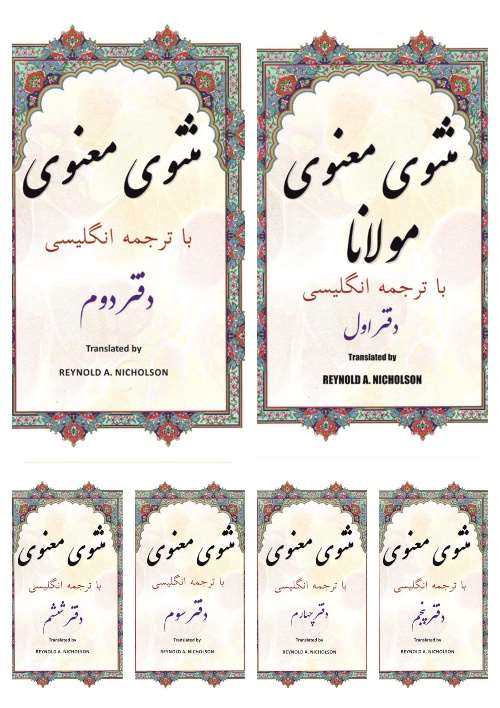
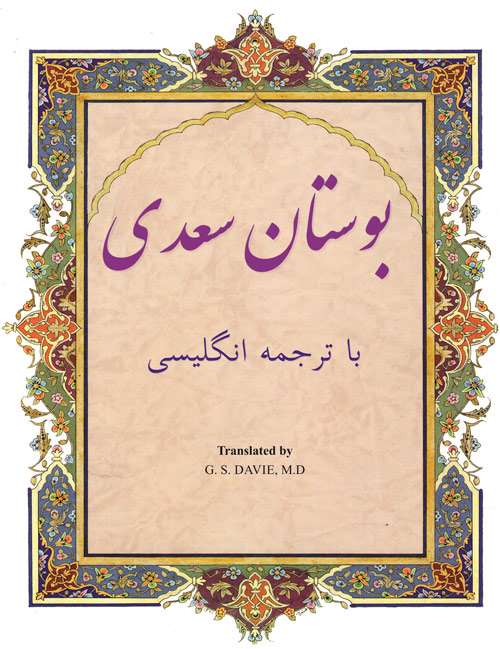

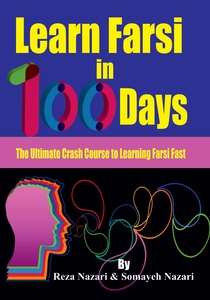






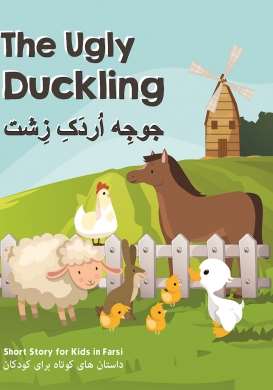
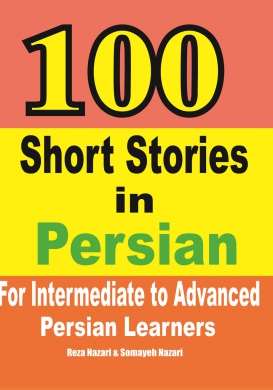


What people say about "A disciple came in to pay his respects"?
No one replied yet.